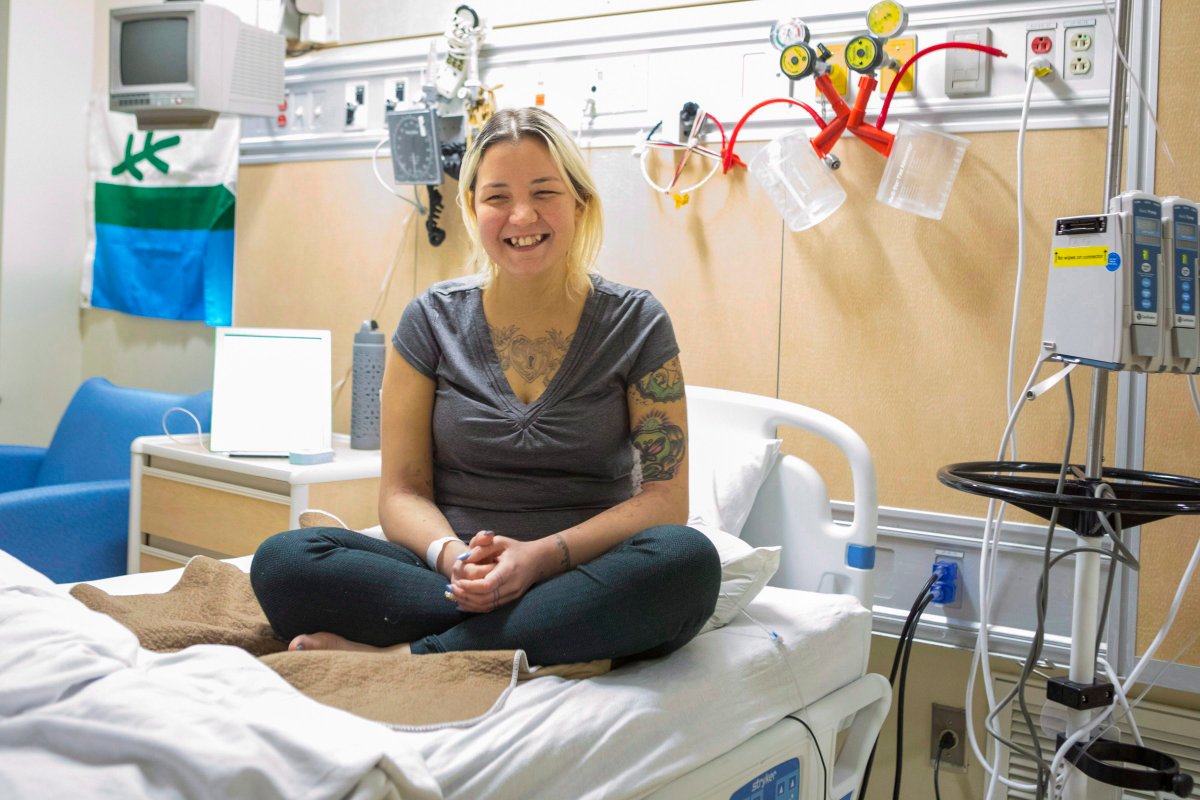An Inuk activist from Labrador is back in hospital with pancreatitis after doctors told her she would not need a liver transplant amid questions about her eligibility under an Ontario transplant program’s alcohol-use policy.

Delilah Saunders posted a video to Facebook on Thursday saying she’ll be staying at the Health Sciences Centre in St. John’s, N.L., for a few days until her pancreas is stable.
READ MORE: Inuk woman discharged from hospital after being denied liver transplant due to alcohol use
Saunders said in the video that doctors are monitoring her condition and managing her pain, which she described as “excruciating.”
“Thank you everyone for your kind words of support and your love,” she told her Facebook followers.
The 25-year-old activist for Aboriginal women was released from a Toronto hospital last weekend after doctors told her she would not need a transplant in the immediate future.
Saunders, who was treated for acute liver failure, has said doctors initially led her to believe she was ineligible for a transplant because she had not abstained from alcohol for the prior six months.
Her case spurred a national discussion about an Ontario transplant program’s six-month abstinence policy, drawing support from Aboriginal groups and Amnesty International.
Transplant doctors have defended the Ontario rule, citing research suggesting some alcoholics return to drinking after the procedure and the transplant may not succeed as a result.
WATCH: Are sobriety guidelines for liver transplants too harsh?

Saunders said she was not feeling up for an interview on Friday, but she has said previously she plans to keep advocating on behalf of other patients who are denied treatment because of the alcohol-use policy, which she characterized as too “restrictive.”
“I’ve gotten to know the inaccessibility (of the health-care system) first-hand in a much more intimate way than I would have preferred,” she said in an interview on Sunday.
“This gives me the extra drive to be able to create that change and to be able to make these life-saving medical procedures more accessible.”



Comments